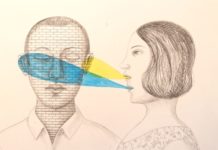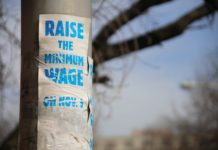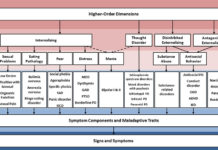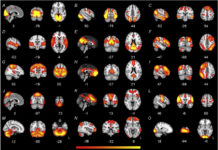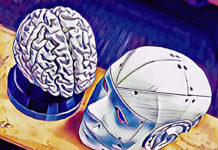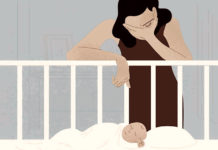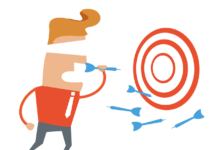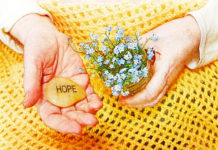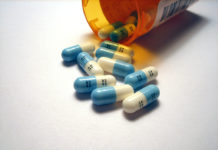Withdrawal Symptoms Routinely Confound Findings of Psychiatric Drug Studies
Researchers examine how rapid discontinuation can mimic the relapse of mental health symptoms and confound psychiatric drug studies.
Psychiatrists View Drug-Free Programs for Psychosis as “Unscientific,” Study Finds
A new study provides an insider’s look into how psychiatrists view the establishment of drug-free programs in Norway.
The Hints That Psychotherapy Clients Drop
Clients regularly hint in passing at what’s causing their distress. The hints we get from a client help us determine which of these many causes are more probable than the others or maybe even which is the cause. Nor is it hard to hear these hints, if we train ourselves to listen for them. Responding to causal hints with a spirit of inquiry and careful talking points deepens the work.
The Therapeutic Role of Blame
When fault is not placed on the right people, innocent people are left vulnerable and alone. They may also begin to question their ability to trust their own feelings and perceptions. When you refuse to blame the people who are legitimately at fault, you gaslight the people their actions are injuring, piling on additional hurt and making it much harder for the wounded to heal.
Higher Minimum Wage May Result in Fewer Suicide Deaths, Study Finds
New research suggests that minimum wage laws provide financial security that may help prevent suicide.
“I Love My Diagnosis”: The Benefits of Mental Illness
What inherent benefits may exist for identifying oneself as mentally ill? Many patients actually hope for a diagnosis. Once granted that special status, they then inform everyone around them—friends, family, the HR department—so that everyone can get on board and act accordingly, altering any expectations they might otherwise have for this person.
International Research Team Proposes a New Taxonomy of Mental Disorders
New data interpreted to suggest a hierarchical, dimensional system of mental disorders will aid future research efforts and improve mental health care.
The Effects of Antidepressant Exposure Across Generations: An Interview with Dr. Vance Trudeau
Dr. Vance Trudeau discusses his study's finding that antidepressants may have far-reaching, adverse effects that last up to three generations.
No Brain Connectivity Differences Between Autism, ADHD, and “Typical Development”
Neuroscience researchers find no differences in brain connectivity between children with diagnoses of autism, ADHD, and those with no diagnoses.
Lasting Damage from Prescribed Drugs
There is a large-scale failure to appreciate the risks involved in taking drugs that alter brain function on a long-term basis. The fact that it has taken single-minded and dedicated campaigners, many of them users of the drugs concerned, to bring these effects to the attention of the scientific and professional community is shameful.
Debate Ensues Over Rights-Based Approach to Mental Health
Debate ensues as scholars and policymakers discuss how to bring a rights-based approach to mental health policy.
Ambushed by Antidepressants for 30 Years
They helped me function for a while, but the debilitating side effects of antidepressants held me prisoner. I'm still having a hard time understanding how this could have happened. It's been suggested to me by a therapist that what I'm going through now is another kind of PTSD: the ongoing trauma of realizing what antidepressants did to me for 30 years.
A Faux Test for a Faux Disease Promoted by Real Psychiatrists
Influential psychiatrists recently called on the NHS to make a faux schizophrenia test available to patients and their families. What is most astounding about this is the complete lack of pretense. "We are so certain of our power and righteousness that we are going to tell you to your face that we are lying, and yet, we will still get our way."
There is More to Mindfulness than the Brain
According to Lifshitz and Thompson, mindfulness is best understood as “complex orchestration of cognitive skills embodied in a particular social context.”
“Breakthrough” Treatment for Postpartum Depression: Game Changer or Misguided Magic Bullet?
Ultimately, the FDA Advisory Committee recommended approval of brexanolone by a 17-1 member vote. I was the only NO vote. I voted NO because as the sole Consumer Representative on the committee I didn’t believe the company had demonstrated that the potential benefits outweighed the potential for harm.
When Does it Help to Have Background Information in Child-Centered Play Therapy?
Knowing the client’s history can help foster genuine empathic responding, a key component to child-centered play therapy.
Introducing Multi-Lens Therapy
How can we restore something as essential to the healing and helping process as knowing what is going on? If your client has an actual biological problem, he needs one sort of help. If he hates his job, he needs another sort of help. It is absurd (and not okay) that a helper would look only at putative “symptoms” and not at what’s going on.
Adderall Use Associated with Increased Risk of Psychosis
Twice as many teenagers with ADHD experienced severe psychosis when taking Adderall, as compared to Ritalin, according to a new study.
Combining Mirtazapine with Existing SSRI or SNRI Does Not Improve Depressive Symptoms
Study finds combining mirtazapine with an SSRI or SNRI is not clinically effective for improving depression in primary care patients who remained depressed after taking an SSRI or SNRI.
I Believe There’s a Gene for Psychosis… And We All Have It!
Without a capacity for delusional thinking, official religions likely couldn’t have thrived, and civilizations couldn’t have developed and flourished. So I conclude that the formula of two parts rationality plus one part delusionality was essential in helping man to ultimately outcompete all other species.
Postpartum Depression: Is Brexanolone the Answer?
After three randomized trials inclusive of only 247 women, and with side effects that include loss of consciousness, brexanolone has been approved for the treatment of postpartum depression. Because of the drug’s risk profile, women must receive the 60-hour infusion under medical supervision and “cannot function as her child(ren)’s primary caregiver.”
Lee Coleman – The Reign of Error
An interview with Doctor Lee Coleman, psychiatrist and author of the 1984 book Reign of Error. Now retired, Lee devotes his time to public education that exposes the individual and public harms from today’s “mental health” industry.
Where Can Families Turn for Help?
Watching my son be subjected to continuous harm by the drugs, how can I pretend that it's okay to maintain this abusive system of care? Who will push for accountability? As a mother, I want to share a meaningful connection with my son. I want to witness him happy, healthy and living the life he chooses.
Does Active Placebo Response Explain Antidepressant Results?
A new study investigated whether participants guessing if they have an antidepressant or placebo affects response rates.
Green Space in Childhood May Protect Against Adult Mental Health Issues
A new study suggests proximity to green space as a child is linked to lower rates of mental health issues in adulthood.


